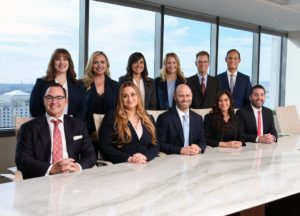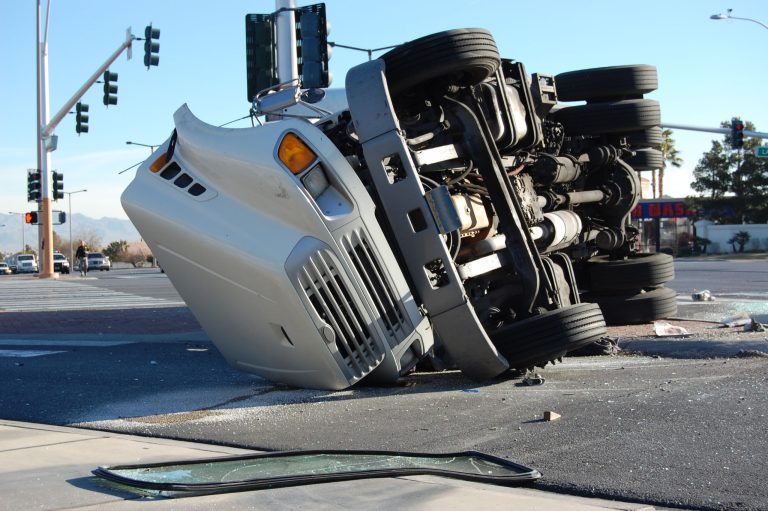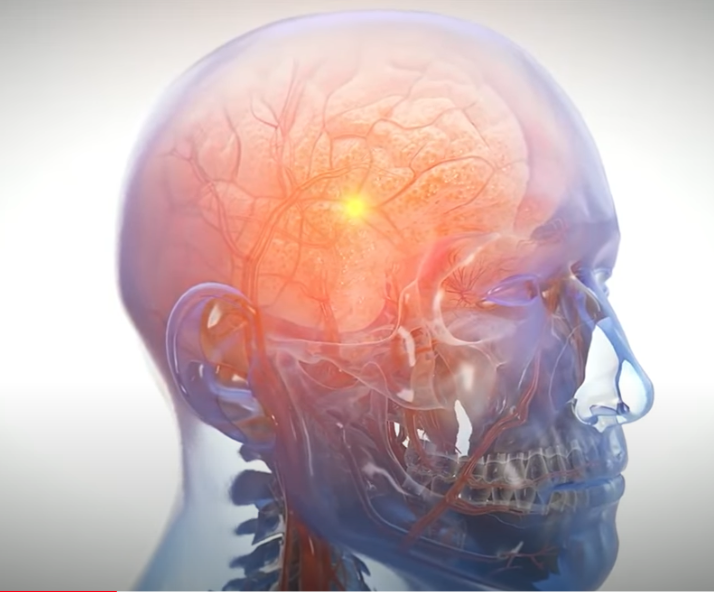According to California Highway Patrol reports, 251,000 people were injured in vehicle accidents in our state during the last year for which statistics are available, an increase of nearly 9 percent over the year before. A total of 3,427 people were killed, nearly 10 percent more than the prior year.
What if you were in one of the car crashes that caused injuries or death? Your first priority, understandably, is likely to get medical treatment for injuries or, sadly, dealing with the aftermath of a death. Health and safety come first. But in many instances, getting in touch with a lawyer should be a priority as well. If you or a loved one has been injured, you may need to take steps to ensure that justice is done. Justice could include obtaining just compensation for your injuries, of all types. It can include determining who or what was at fault for the accident.
There are many reasons to contact a car accident attorney. Read on to find out what those reasons are.
To Negotiate With an Insurance Company
Most motorists in California know that we are a fault state for insurance purposes. In other words, the at-fault party in the accident can be liable for the injuries or death the accident causes.
Under the financial responsibility law, drivers who park or operate a car on California roadways should obtain liability insurance. The minimums are:
- $15,000 for injury or death to one person.
- $30,000 for injury or death to more than one person.
- $5,000 for property damage.
In most cases, that means that an injured person can get in touch with the at-fault party’s insurance carrier and file a claim for damages incurred, such as medical bills to treat the injuries. This may sound straightforward. But in many cases, it may not be as straightforward as it sounds.
Investigating an Accident
First, there may be some question as to who or what caused the accident. Some accidents have a straightforward cause, such as one driver barreling through an intersection against a stop sign. Others may not be so straightforward, or may have multiple causes. What if the driver tried to stop and suddenly the brakes didn’t work? The fault then could rest with a car repair business, the brake manufacturer, or the automobile manufacturer, for defective services and/or products.
Attorneys are in a position to investigate the causes of accidents. They can thoroughly review all police reports (reporting an accident is required by law if someone is injured or killed). They can talk to eyewitnesses. They can determine whether surveillance camera footage is available. They can work with forensic specialists to determine what made an accident happen.
Second, you may have suffered a hit-and-run, when one party to the accident doesn’t stop. Make no mistake: it is against the law to leave the scene of an accident in California. Motorists should stop and exchange information.
If the other driver didn’t stop, you may simply not have their insurance information to file a claim if they were at fault. But the story needn’t stop there. An investigative team for a legal firm can work to ascertain whether there is any way of determining the car and driver.
In some instances, surveillance footage, if available, may show a license plate or other identifier that can be used to track the driver down. In others, eyewitnesses or people in the surrounding area may have a license plate or other identifier. In some cases, if a car is damaged in a certain way, body shops can be contacted to ascertain if they have had customers come in to repair such a car.
Negotiating for a Just Settlement
Second, a lawyer can negotiate with an insurance company to ensure that they pay you what you are entitled to. Having a lawyer on your side increases the likelihood of a just settlement.
Insurance companies are highly experienced at trying to minimize their risk. Their risk, you might think? I’m the one who was injured! But insurance companies see potential payouts to people hurt or killed by their insured as a risk that reduces their potential profits. They have an incentive to minimize the cost—which is the claim they might pay to you.
Insurance companies may try to pay you immediately—which can sound good, until you realize that they may be paying quickly to close out the claim before you realize that your injuries are worth much more.
They may especially try this tactic, known as a low ball offer, if they are aware that you need money to pay your medical bills and related expenses. People who feel stressed by mounting medical bills, on top of injuries and the trauma of a car accident, may jump at the first sign of an offer.
They may also allege that you are either partly or completely at fault for the accident, and thus that the fault provisions of California law don’t apply, because their insured wasn’t at fault. If their insured is in fact at fault, the investigative resources of an attorney can be very helpful in presenting this evidence to the insurance company.
Insurance companies may also dispute your injuries. First, they may dispute that the injuries were caused by the car accident in question. If the accident sprained your ankle and after treatment you cannot walk without a limp, you should be compensated for a long-term injury rather than a simple sprain. But an insurance company may allege that you limped or had weak ankles before the accident, and that they shouldn’t have to pay a claim for long-term care.
Injuries do need to be directly related to the car accident, and not some other cause, to be compensable by an at-fault driver. But insurance companies may allege that your injuries aren’t related even if they are.
Second, insurance companies may dispute the extent of your injuries. If you have a traumatic brain injury (TBI), for example, they may try to classify it as the mildest type possible, rather than a more appropriate designation of moderate or severe. Why? Because TBIs can cause life-long symptoms and be potentially life-threatening. The more serious the classification, the higher an insurance company’s payout is likely to be.
Insurance companies can use arguments that may surprise some. People may not realize they are injured directly after an accident, because not all injuries show symptoms (TBIs are an example; some symptoms are so brief that a victim may not be aware of them). The insurance carrier may argue that your failure to go to an emergency department or immediately to a doctor indicates that you were not as severely injured as you claim. However, a skilled attorney can point out that many injuries don’t present with immediate symptoms.
Third, they may dispute the nature of your injuries. They may argue that your diagnosis is inaccurate, and that the diagnosis should have been other than it was. Relatedly, an insurance company may argue that your doctor’s recommended course of treatment is not all necessary, and that the standard course of treatment is different.
They can also dispute non-medical areas. Injured people are also entitled to compensation for wages lost from work, if the injuries or treatment of them have caused them to miss time at work. Insurance carriers may determine that your wages lost from work are less than they actually are.
You may also be entitled to compensation for pain and suffering. A lawyer can help you negotiate to receive maximum compensation in this area. How? Well, pain and suffering as a category is somewhat subjective. It includes pain from physical causes stemming from the accident, but it also includes mental and emotional suffering, loss of companionship and consortium, and more.
To determine the amount of pain and suffering a car accident victim should receive, insurance claims adjusters usually assign a multiple to the economic damages the victim has already incurred and is expected to incur in the future. The multiple usually ranges from 1.5 to 5.
The lower end of the scale is generally assigned to injuries that will heal in relatively short order and not leave lasting damage, such as a simple arm fracture. It is painful, yes, but the pain and lack of mobility are short term.
If an injury is catastrophic—which means that the person’s life is irrevocably changed in a negative way—the highest multiple is generally assigned. A catastrophic injury such as some types of TBIs or spinal cord damage, for example, can leave a person unable to see, speak, or walk again.
But the deployment of the multiplier can also be somewhat subjective. A claims adjuster may assign a multiplier of 3, for example, when circumstances indicate it should have been a 4. The difference can amount to thousands of dollars for a severe injury.
A lawyer can compile evidence of the nature of pain and suffering, so that the claims adjuster makes the appropriate decision. Generally, for instance, a person whose life is more severely affected by an injury than someone else’s might be is assigned a higher multiplier.
Say a 16-year-old’s leg is fractured in multiple places during a car accident, for example. She will always have a slight lack of mobility as a result. What if the 16-year-old is a promising ballerina whose teachers were already forecasting a potential professional career in dance for her? In her case, a potential career requiring special talents that she possessed was cut short. She may deserve a higher multiplier than a 16-year-old whose injury is certainly highly unfortunate, but who did not suffer the loss of a potential career.
Other factors also affect assigned multipliers. Younger people whose injuries are long-lasting or likely to be permanent are often provided with higher multiples than older people with the same injury. The reason? Younger people will be living with the injuries and their effects for longer periods of time.
To File a Personal Injury Lawsuit
There are times when bringing a third-party claim isn’t bringing justice to the victim or isn’t an option. In those cases, California’s insurance system also allows victims to bring a legal suit for personal injury against an at-fault driver or other at-fault party, such as a manufacturer.
As in insurance company negotiations, the plaintiff (the victim) in a personal injury lawsuit will need to provide evidence that another party was at-fault for the accident and that their injuries are a result of the accident, and not some other cause.
Evidence and testimony about the cause of the accident, your injury, and the economic and noneconomic (pain and suffering) damages you suffered as a result are similar to the evidence required for a third-party claim, but it is presented to the court rather than to an insurance company, and the court (judge and jury) decides the outcome.
To File a Wrongful Death Suit if a Loved One Has Died

Sadly, at times a loved one may die as the result of a car accident. When victims are no longer around to file a third-party claim or a personal injury lawsuit, certain parties are entitled to file a wrongful death suit. A wrongful death suit is similar to a personal injury suit in that it compensates claims related to medical bills (in this case, for final injuries or illnesses) and lost income (in this case, loss of the income the deceased would have been likely to receive in the future). Funeral and burial expenses can also be sought.
In addition, such a suit can financially compensate survivors for losses caused by the death, including the value of household services, financial support that could have been anticipated, and loss of love, attention, affection, moral support, and guidance.
We realize financial compensation cannot make up for the loss of a loved one, but a death can wreak financial and emotional harm on a family. A wrongful death suit can at least repair some financial harm.
In general, close relatives, companions, or those dependent upon the deceased are the only people entitled to bring a wrongful death suit. This includes the deceased person’s
- Spouse
- Domestic partner
- Surviving children
If the deceased has none of the above, a suit may be filed by any person entitled to the deceased’s property by intestate succession, which can be parents or siblings. A putative spouse and children of a putative spouse can bring a wrongful death claim if they were financially dependent upon the deceased, as can stepchildren and parents.
When in doubt about your rights, ask a car accident lawyer for more information.







